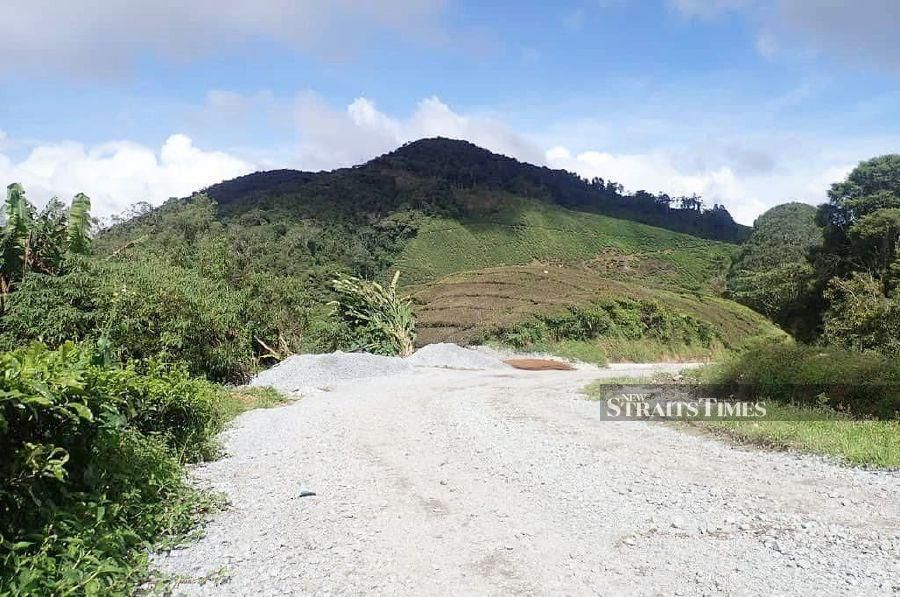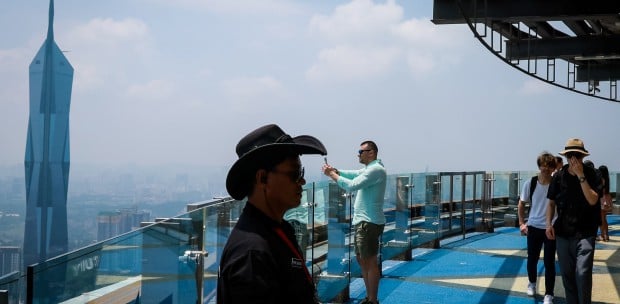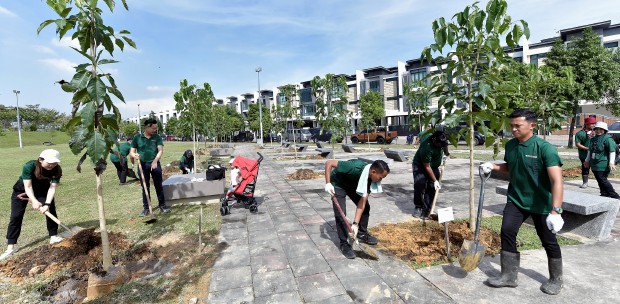While it's crucial to provide social safety nets for vulnerable communities to cope with temporary economic shocks, Malaysia also cannot afford to lose sight of environmental sustainability due to the ongoing threat of climate change.
As heat-trapping greenhouse gas (GHG) to the atmosphere continues to increase, it does not only result in rising average temperature by over 1 degree Celsius, but also leads to heatwaves, droughts and torrential rains, shifting wildlife populations and habitats, rising seas and floods.
Malaysia is also facing the adverse effects of climate change and remains vulnerable to the threat of floods, landslides, haze and water pollutions. Up till Aug 2018, Malaysia has experienced 51 natural disaster events in the last two decades where 281 people died, over 3 million people were affected, causing nearly US$2 billion (RM8 billion) in damages.
A recent Pew Research Centre's International Science Survey 2019-20 showed that around seven in 10 Malaysians place more priority on environmental protection, even if it comes at the expense of economic growth and the creation of more job opportunities.
The latest HSBC survey also revealed more than nine out of 10 Malaysian businesses agreed the need to re-assess or review operations to rebuild business on firmer environmental foundations.
However, it is relatively challenging for Malaysia to move towards green recovery as according to the Green Economy Tracker, over 90 per cent electricity comes from fossil fuels. Nevertheless, it is applaudable the current administration is committed towards green recovery – advocating sustainable development agenda in the Budget 2021 for the first time.
Among the initiatives, include:
1. Cooperate with the UN to establish the Malaysia-SDG Trust Fund or MySDG Trust Fund to coordinate financing from various sources to ensure the SDG is achieved by 2030;
2. Issue first Sustainability Bond in Malaysia for environmental and social initiatives in 2021;
3. Further encourage issuance of Sustainable and Responsible Investment (SRI) products and bonds that achieve green, social and sustainable standards in Malaysia, the existing income tax exemption for SRI green sukuk grant is extended to all types of sukuk and bonds until 2025;
4. Continue Green Technology Financing Scheme 3.0 up to 2022 which will be guaranteed by Danajamin to encourage the issuance of SRI sukuk;
5. Provide RM40 million over five years to strengthen environmental quality monitoring enforcement activities including the establishment of 30 monitoring stations nationwide;
6. Increase allocation under the Economic, Infrastructure and Welfare Development-Based Grants (TAHAP) to State Governments to RM400 million of which RM70 million allocated for the purpose of Ecological Fiscal Transfer Activities, an additional incentive to the State Government to ensure sustainability of the country's biodiversity; and
7. Implement mangrove tree planting programmes to preserve mangrove swamp areas and other tree species along the coast including Tanjung Piai, Johor and Kuala Sepetang, Perak.
To align the latest development and future needs, the government should review existing policies and legislations such as National Forestry Policy 1978 (Revised 1992), National Forestry Act 1984, National Policy on the Environment 2002 and National Water Resources Policy 2012. Strong enforcement of regulations can ensure wider compliance to environmental standards.
The government could also encourage industrial players to use renewable energy instead of fossil fuels by providing small grants towards building a more sustainable green future while education on sustainable development has to be implemented in schools, institutions of higher education and teacher training centres to promote a better understanding of environmental issues.
Moreover, the government needs to support sustainable infrastructure and reimagine sustainable cities that are fit-for-purpose in the post-Covid-19 world, including encouraging low-carbon mobility and promoting the construction of green buildings.
Adopting sustainable consumption and production concept in expanding green market and better waste management towards circular economy, would reduce GHG emissions, in turn would stimulate economic regrowth, improve resource efficiency, minimise pollution and increase resilience to zoonotic threats and natural disasters.
By restoring the balance between people and planet, more green and decent jobs can be created; ecotourism and green transport systems can be formed and supply chains for green products can be generated.
With the recent call from the United Nations (UN) Secretary-General António Guterres to "make peace with our planet" during the UN's 75th anniversary on Oct 24, it is time for Malaysia to reset our development agenda by strengthening green recovery efforts while trying to save more lives and livelihoods.
* The writer is Research Analyst at EMIR Research, an independent think tank focused on strategic policy recommendations based on rigorous research.





